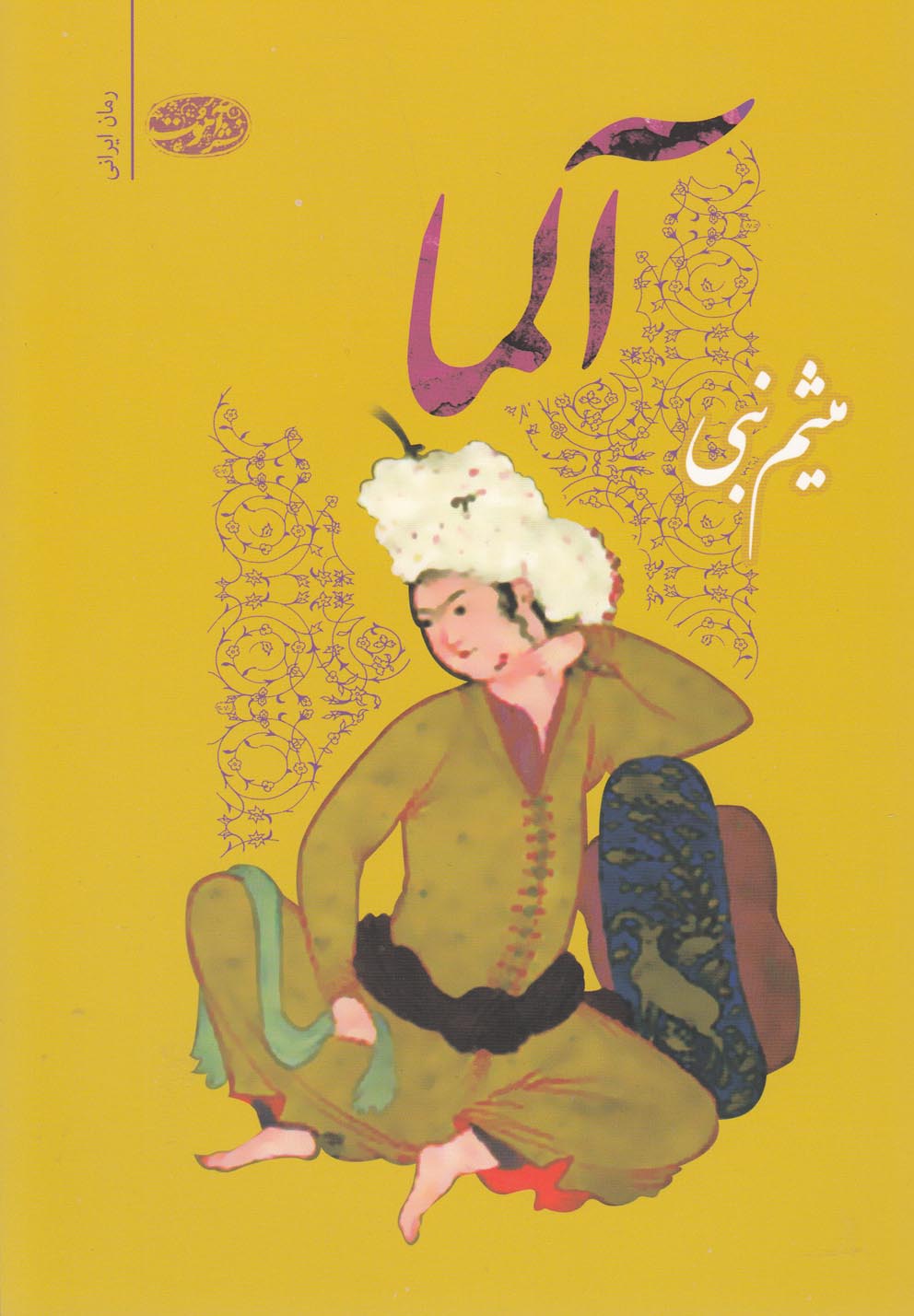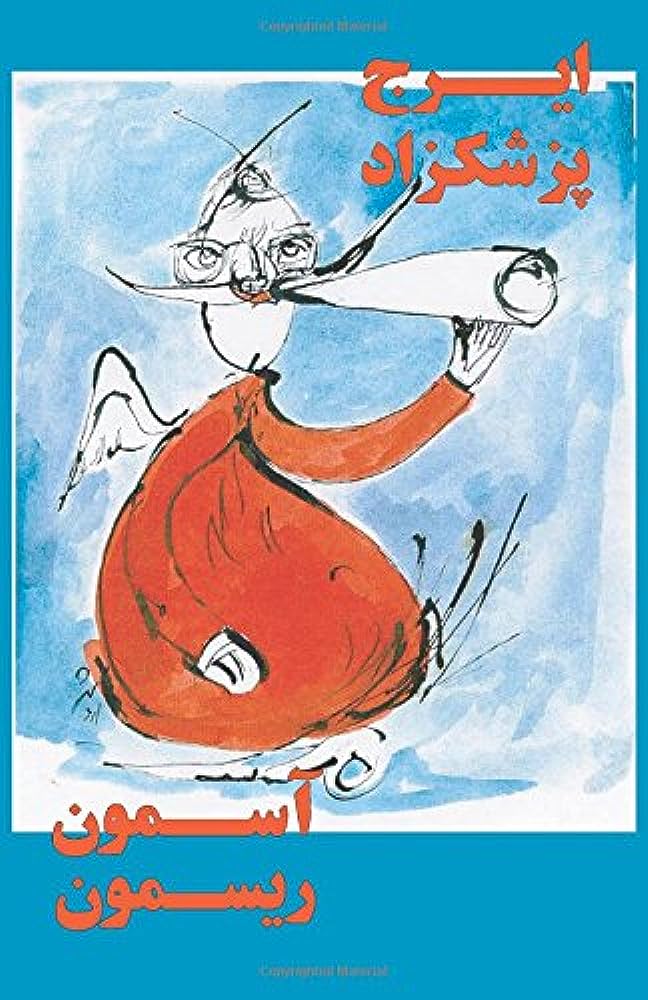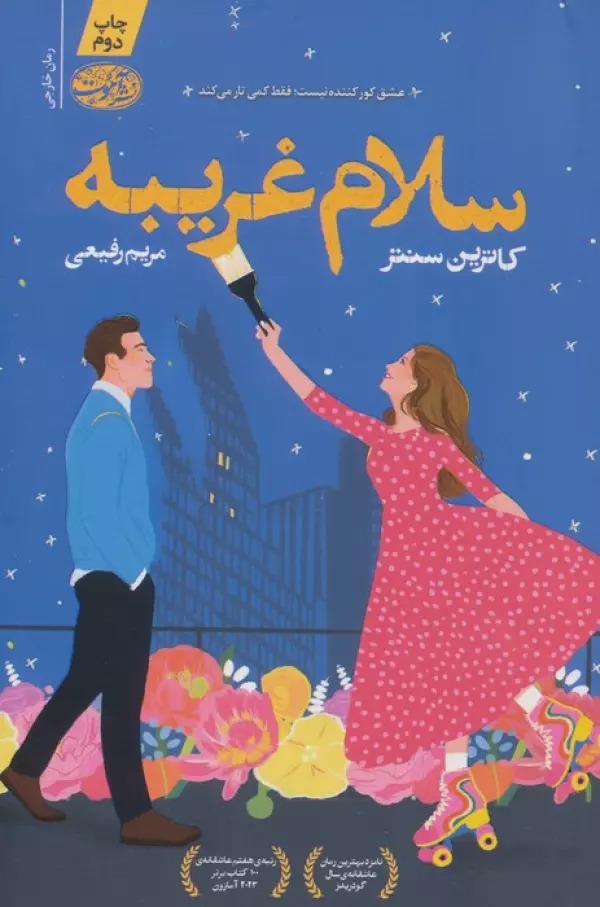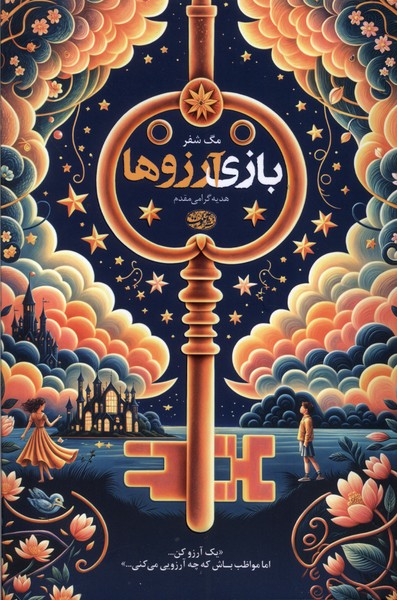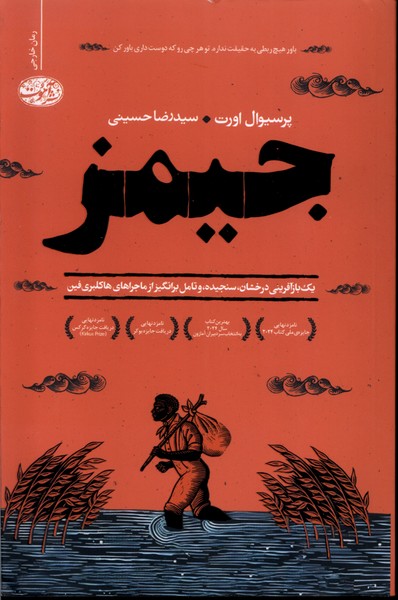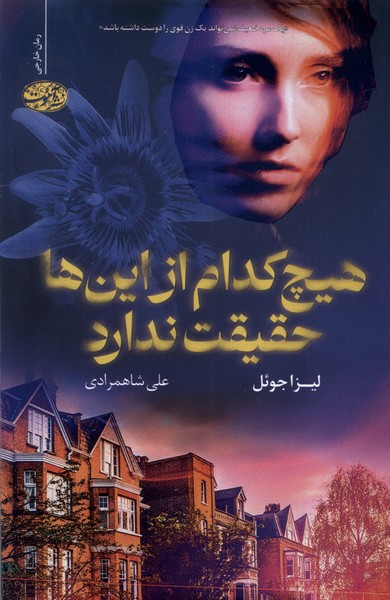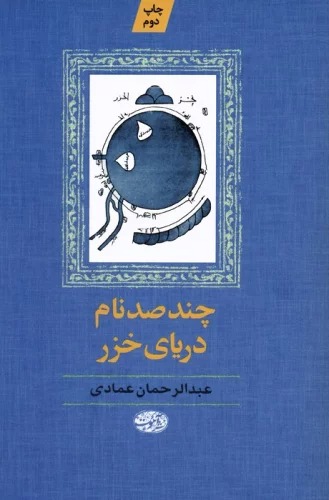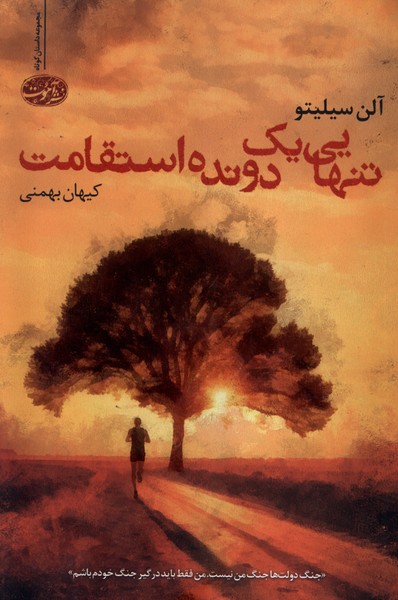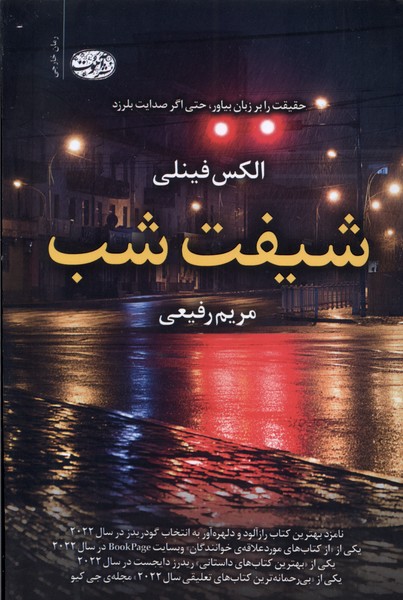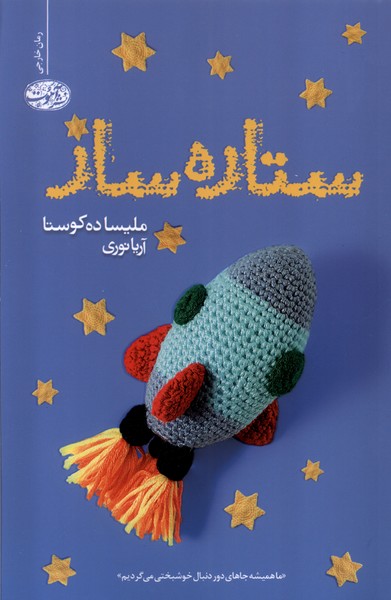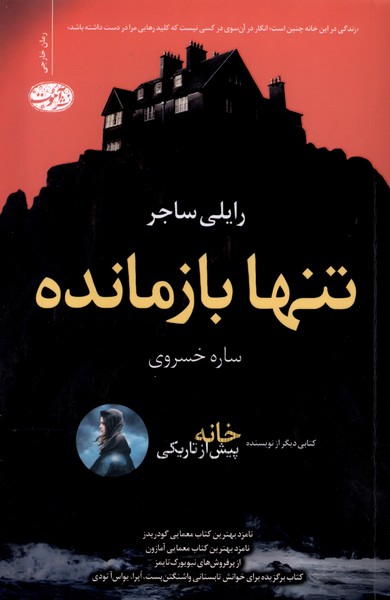Ālmā: Persiska (Farsi) 1401
آلما
180 SEK
Dela
Wishlist
Reading the first few lines of "Alma" is enough to understand that we are dealing with a writer who has the essence of writing; Someone who knows how to portray and without exaggeration can throw us into the space of his story with a beginning like this. "I am sitting in the dark half of the cafe behind the square single table attached to the wall. As usual, Juan is sitting in the middle of the cafe on a Polish chair with that strange cape and hat, hugging his guitar and running his elongated fingers along the strings. A slight wind howls outside and shakes the loose glass of the window next to me. From time to time, a car passes by and shines a beam of light on the street floor. My heart wants a quiet melody..." Meysham Nabi delicately plays with all the reader's senses without pretentious tricks and uses light, sound, and image to finally convey the brevity of his story. This relatively refined language of the author, in addition to the thinness of imagination that is suitable for the first-person female narrator, has caused the reader's desire to continue reading, as well as raising his expectations from this novel. "While spinning, I unplug my body, put my headphones and mp3 on the table, go into the bedroom and collapse my heavy body on the bed. I stare at the ceiling a little absent-mindedly. I turn on the lampshade. As always, large shadows appear quietly and quietly on the ceiling and walls and cover my small room from east to west. The war between light and darkness resumes. Gilly, I'll take out my little Jasuichi pendant doll from my bag and put it next to the lamp..." (Page 13) "Alma" is a narrative of the life or a slice of the life of a young girl who is a university lecturer and faces mental and objective conflicts; On the one hand, he is on the verge of marriage, and on the other hand, he is struggling with work and everyday problems, and all of this is tied to his hometown and difficult past with a sense of nostalgia. As we progress in the story, we realize that as much as Nabi acts powerfully in describing and creating the atmosphere of the story, unfortunately, he is incapable of expanding it; It's as if the story is made up of disjointed parts that are connected by a faint thread. In the continuation of the story, the author wanders from one island to another island like a captain without a plan, without worrying that a group of singers are passengers on this ship, sometimes he tells stories about the problems of the workshop, sometimes about students protests, being suspended from work and part of his ambiguous childhood life. The further one goes in this valley, the more visible this rupture becomes, and instead of unraveling a knot, stories are told that the reader is not very concerned about discovering. Some characters pass like a shadow on the wall of the narrative and disappear, and some others pass like a breeze through the leaves and move nothing but rustling. "Alma" had the capacity to draw the reader in with a coherent and calculated plan in the form of a bulky novel, but as if due to boredom without proper contexts and payment due to patience, its scroll is dismantled at once and the completion of the adventures just like the end of the television series, makes everyone happy in a few sentences of the ending; Arman, the disillusioned musician, quits international orchestras, the tumultuous teacher is accused of moral corruption, and the oppressor woman dies forgiven. In this work, Maysam Nabi appeared like a powerful director who portrays a weak script; While he has shown that he is a writer by nature with his abilities in "Alma"; A writer who overcomes his temptations in favor of novel structure will be able to create lasting novels.
more
خواندن چند سطر آغازین «آلما» کافی است تا بفهمیم با نویسندهای مواجهیم که ذات و جوهره نویسندگی دارد؛ کسی که تصویرسازی را بلد است و بدون زیاده گویی میتواند ما را با آغازی این چنین به فضای داستانش پرتاب کند. «توی نیمه تاریک کافه نشستهام پشت میز تکنفرهیمربعی که چسبیده به دیوار. خوآن به عادت همیشه با آن شنل و کلاه عجیب و غریبش نشسته وسط کافه روی صندلی لهستانی، گیتارش را بغل زده و انگشتهای کشیدهاش را لابلای سیمها میدواند. بیرون باد خفیفی هوو میکند و شیشهی لق پنجره کناریم را میلرزاند. هر از گاهی هم ماشینی میگذرد و باریکه نوری را میتاباند بر کف خیابان. دلم یک ملودی آرام میخواهد...» میثم نبی با ظرافت، تمام حواس خواننده را بدون شگردهای خودنمایانه به بازی میگیرد و نور و صدا و تصویر را به کار میبندد تا در نهایت ایجاز فضای داستانش را منتقل کند. این زبان نسبتا شستهـ رفتهی نویسنده علاوه بر نازک خیالیهایی که متناسب با راوی اول شخص زن است موجب شده علاوه بر برانگیختن اشتیاق خواننده به ادامه مطالعه، توقع او را از این رمان بالا ببرد. «در حین چرخش، سیمکشیهای تنم را باز میکنم، هدفون و mp3 را میگذارم روی میز، میروم داخل اتاق خواب و آوار تن سنگینم را خراب میکنم بر سر تخت. کمی بیخود و بیجهت خیره میمانم به سقف. آباژور را روشن می کنم. سایههای بزرگ مثل همیشه آرام و بیصدا روی سقف و دیوارها ظاهر میشوند و از مشرق تا مغرب اتاق کوچکم را دربر میگیرند. جنگ میان نور و تاریکی دوباره سر میگیرد. گیلی، عروسک کوچک آویز جاسوئیچیام را از توی کوله میآورم بیرون و میگذارم کنار چراغ...» (صفحه 13) «آلما» روایت زندگی یا برشی از زندگی دختر جوانی است که مدرس دانشگاه است و با درگیریهای ذهنی و عینی مواجه است؛ از سویی در آستانه ازدواج است و از سوی دیگر با مشکلات کاری و روزمره دست به گریبان است و همه اینها در انتها با حس نوستالژی به زادگاه و گذشته دشوارش گره میخورد. هر قدر که در داستان پیش میرویم در مییابیم که نبی همان اندازه که در شرح و ایجاد اتمسفر داستان با قدرت عمل میکند متاسفانه در بسط و گسترش آن ناتوان است؛ گویی داستان از اجزایی از هم گسیخته تشکیل شده که پیرنگی کم رمق آنها را به هم وصل میکند. نویسنده در ادامه داستان مانند ناخدایی که بی نقشه دل به دریا زده است از جزیرهای به جزیرهای دیگر سرگردان راه میپیماید بدون اینکه دغدغه این را داشته باشد که گروهی خواننده مسافر این کشتی هستند، گاه از مشکلات کارگاه، زمانی از اعتراضات دانشجویی، معلق شدن از کار و بخشی از زندگی مبهم کودکیاش قصه ساز میکند. در این وادی هر چه جلوتر میرود این گسیختگی نمایانتر میشود و به جای اینکه گرهای باز شود، ماجراهایی نقل میشود که دغدغه کشفشان چندان در خواننده ایجاد نشده است. برخی شخصیتها چون سایهای بر دیوار روایت میگذرند و محو میشوند و بعضی دیگر چون نسیمی از سر برگها میگذرد و جز خس و خاشاک چیزی را جابهجا نمی کند. «آلما» ظرفیت آن را داشت که با طرحی منسجم و حساب شده در قالب رمانی حجیم خواننده را دنبال خود بکشد ولی انگار از سر بیحوصلگی بدون زمینهسازیهای مناسب و پرداخت از سر صبر، تومار آن به یکباره برچیده میشود و به سرانجام رساندن ماجراها همانند پایان سریالهای تلویزیونی همه را در چند جمله عاقبت بهخیر میکند؛ آرمان نوازنده سرخورده سر از ارکسترهای بین المللی در میآورد، استاد غوغاسالار با اتهام فساد اخلاقی سرجایش مینشیند و زن ستمکار، آمرزیده از دنیا میرود. میثم نبی در این اثر مانند کارگردانی قدرتمند ظاهر شده که فیلمنامهای کم توان را به تصویر در میآورد؛ در حالی که با تواناییهایش در «آلما» نشان داده ذاتا نویسنده است؛ نویسندهای که اگر بر وسوسههایش به نفع ساختار رمان، غلبه کند خواهد توانست رمانهایی ماندگار خلق کند.
more

